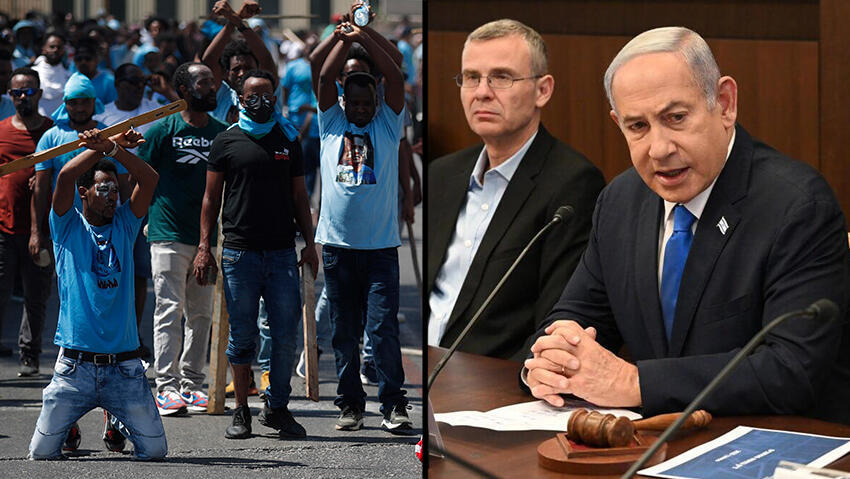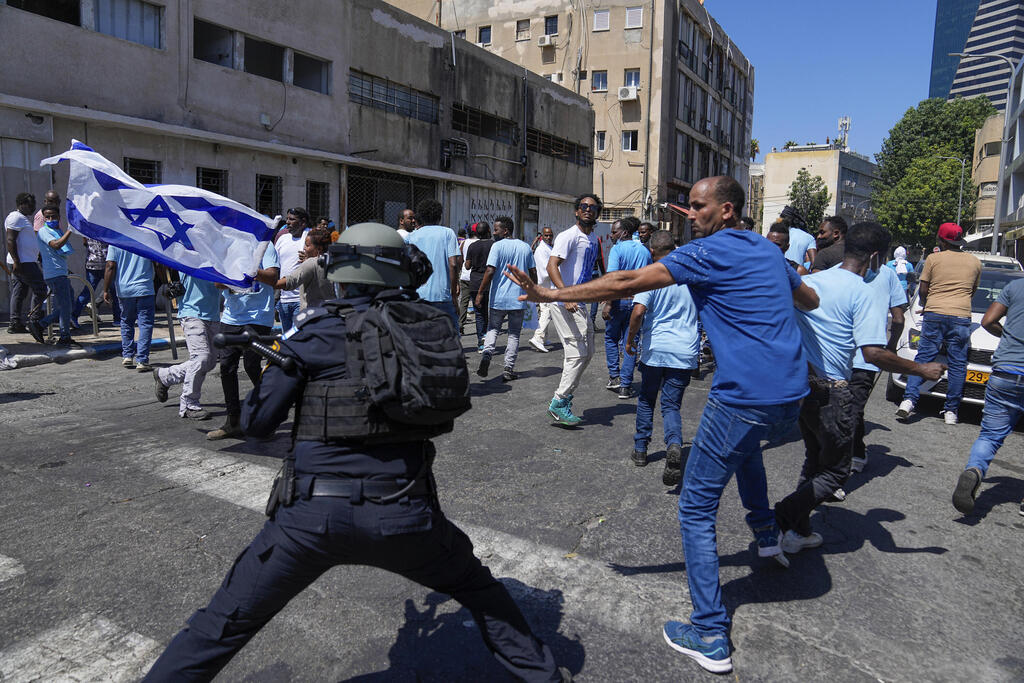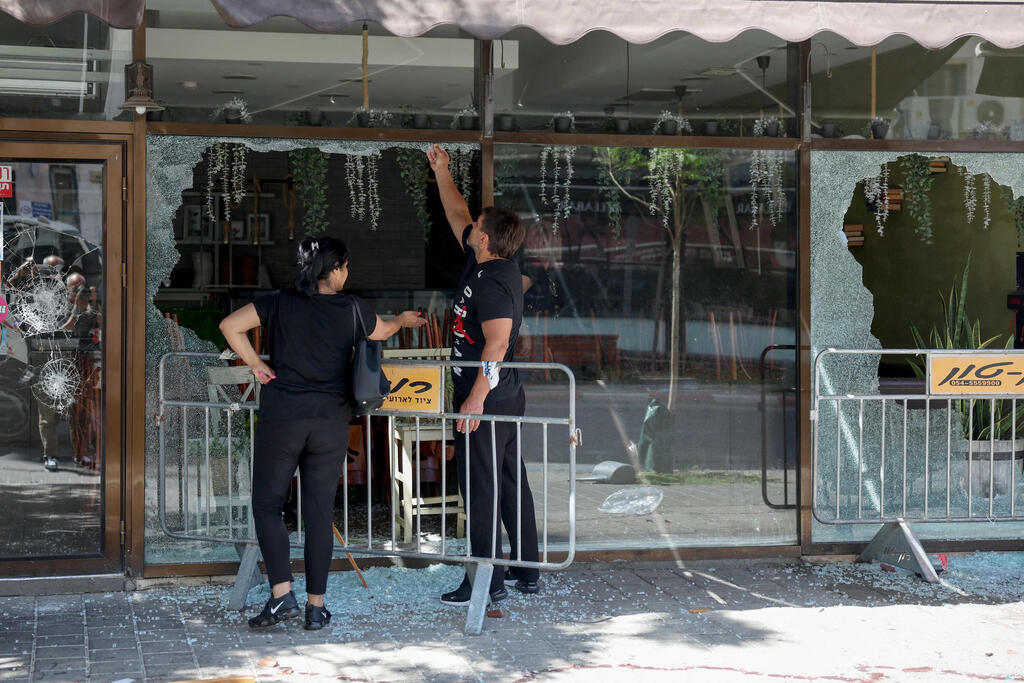Getting your Trinity Audio player ready...
Prime Minister Benjamin Netanyahu convened a special panel of ministers on Sunday to discuss the violent riots of Eritrean asylum-seekers in Tel Aviv on Saturday and to consider measures to be taken against them. The ministers said some rioters should be put under administrative detention and others should be deported.
More stories:
Some 50 asylum-seekers are in police custody and will be brought before a court to remand their arrests. National Security Minister Itamar Ben Gvir, requested that the police arrest more people suspected of rioting.
3 View gallery


Eritrean riots in Tel Aviv, Prime Minister Benjamin Netanyahu
(Photo: EPA/ATEF SAFADI Haim Tzach, GPO)
Prime Minister Benjamin Netanyahu said there was still a serious problem with asylum seekers in the southern quarters of Tel Aviv. "What happened yesterday was crossing a red line. We won’t allow such riots and bloodshed. We’re demanding strong measures be taken against the rioters, including immediate deportation of those who took part in the violence," he said. "I also asked this forum to prepare a comprehensive and updated plan for the deportation of anyone staying in Israel without a permit. Illegal immigration from Africa posed a real threat to the future of Israel as a Jewish and democratic state,” the prime minister said.
Netanyahu told his ministers that his government did not consider a 2018 agreement brokered with the UN to resettle half of the African asylum seekers, despite having announced the agreement publically at the time, calling it the best possible agreement and an unprecedented achievement. But under pressure from detractors of the agreement, among his supporters, he backed out of the deal immediately after making those remarks.
The Aid Organization for Refugees and Asylum Seekers in Israel (ASSAF) said the police failed to prepare for the possibility of violence. "The National Security Ministry and the police, despite knowing about the planned event and its potential for violence, chose to ignore the warnings and turn a blind eye to them, waiting for a spark to ignite the wild incitement against the asylum seekers and the Eritrean refugee community in Israel," Assaf said in a statement.
"It would have been appropriate for policymakers to investigate the use of live ammunition by police in the heart of a residential neighborhood. Instead, the government is proposing the use of anti-democratic practices such as administrative detentions. In doing so, it paves the way for further abuses of human rights and attempts to enlist public opinion for additional legislative moves that will only bring further persecution.”
Eyal Sisso, the Population and Immigration Authority’s director-general, said that over 2,000 asylum-seekers voluntarily left Israel as part of the government’s incentive program. and that an additional budget of about 30 million shekels is required to increase the program’s activity.
Development of the Periphery, the Negev, and the Galilee Minister Yitzhak Wasserlauf said he would provide the funds from his ministry’s budget, with the aim of rebuilding neighborhoods affected by the riots.
The violent riots by Eritrean asylum-seekers in Tel Aviv injured at least 135 people, with 15 of them seriously. After hours of chaos in the streets, the police said order was restored to the area.



